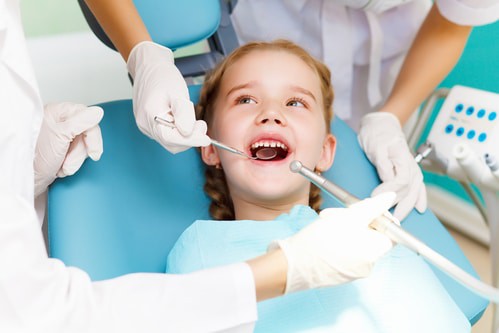 Future health can be secured during childhood, which is why setting your children up for a healthy lifestyle is so important. Dental health is an essential part of your child’s health, which is why understanding the science behind paediatric dental care is so crucial.
Future health can be secured during childhood, which is why setting your children up for a healthy lifestyle is so important. Dental health is an essential part of your child’s health, which is why understanding the science behind paediatric dental care is so crucial.
Obviously, your paediatric dentist is your greatest resource during this period, but it is what you do at home, on a day to day basis, which will really set your child up for a lifetime of healthy teeth and gums.
The Early Stages
Teething is the first stage of dental care. This can be an uncomfortable stage for both the parents and the baby, and it can be filled with pain, tears and very little sleep.
To alleviate the pain of teething, you can do a number of things Including providing your baby with a chilled teething ring or non-sweetened rusks. Rubbing the gums with a clean finger can also help.
As soon as the first tooth erupts, decay becomes a factor. To keep those first precious teeth healthy, you should:
- Get your child to drink from a toddler cup as early as possible
- You should avoid all sugary drinks like cordial and fruit juice in feeding bottles as much as possible. You can use a dummy to break the dependence on needing to suck on something to settle but never coat the dummy with honey or sugar- these are false pacifiers.
- Following a feed of either breast or bottled milk, you need to use a moist cloth to wipe away any residual milk on the teeth. Doing this will limit contact with sugar as much as possible.
- Try to get your child used to a routine of three meals and two snacks a day. Frequent snacking exposes the teeth to high levels of sugar and acid, and even healthy options like fruit can cause damage.
Thumb Sucking vs Dummy
Sucking is a natural reflex for babies and young children. However current research suggests that prolonged usage of a dummy as well as any finger has the potential to interfere with airway and jaw development. It is essential that you break either habit between the ages of two and four. If your child continues the habit then this can also cause speech defects.
Brushing Your Baby’s Teeth
- Buy a baby’s toothbrush and only clean with plain water. This should be done after the last evening feed.
- After 18-months, you can use special low fluoride toothpaste to protect against decay. Make sure you only use a pea size amount and reinforce the importance of spitting it out.
- At the age of four or five, children can brush by themselves with your supervision.
Creating Healthy Dental Habits
You need to imprint a healthy dental routine within your child at an early age. The best way to do this is to get them involved in the process as early as possible. So, you can get them to brush their teeth while they are young but still follow up with your own brush to ensure no spots are missed.
You also need to build a healthy relationship with the dentist. In an ideal world, your child will be introduced to your dentist when they are a baby and continue to see this dentist throughout adolescence. This consistency will guard against any possible anxiety or fear later on in life, as your child will know they are in a safe and familiar environment.
Providing your children with a healthy diet is essential in safeguarding their oral health. No amount of brushing and flossing can undo the damage of sugar and acid. Soft drinks and fruit juices should only be consumed as a treat, with an emphasis on fruit, vegetables and calcium.
Toddlers are notoriously difficult, so follow these tips to ingrain healthy dental habits in your toddler:
- Use a combination of methods to teach them. Get them to watch you brush, tell them what you’re doing and ask them to copy the motion themselves.
- To make the process fun, you can do it as a family, and put a song on and ensure they brush for the entirety of the song.
- Purchase a toothbrush that makes brushing fun. It could feature their favourite television character, or it could play a song. If you add to the novelty, there’s more chance that they will enjoy the process.
So, if you have a young child now is the perfect time to become a master in the science of paediatric dental care. If you know what you’re doing, and you work with your dentist, your children will have the best possible chance of enjoying a lifetime of healthy teeth and gums.
If you have any questions regarding paediatric dental care, reach out to our dentists in Camberwell.
